Knowledge For Resilience in the Peace
The cross-commodity podcast series touches on our primary agricultural commodity players including grains, oilseeds, forage seed, forage, livestock and horticulture. Margins in agricultural businesses are often small. Adopting new farming practices can bring a costly learning curve. Having access to knowledge from researchers, experts and peers who have already walked the path of trying a new practice or technology, affords more producers the opportunity to adopt production practices they may not otherwise have implemented.
Episodes

Thursday Aug 21, 2025
Thursday Aug 21, 2025
What happens when creativity, community, and regenerative farming principles come together? At Wildwood Farm near Pouce Coupé, Kolby Peterson and William Antoine-Gutierrez are building a model of resilience that produces healthy food, heals the land, and connects people to agriculture. In this episode of Knowledge for Resilience, hear how two young farmers are shaping the future of farming in the Peace Region.

Thursday Aug 21, 2025
Thursday Aug 21, 2025
Resilience in agriculture isn’t just about crops and cattle—it’s about people. Join us as Mike Skrypnek from the Stigma-Free Mental Health Society talks about breaking down stigma, starting open conversations, and making mental wellness a part of everyday farm life. This episode of Knowledge for Resilience highlights how mental health is essential for thriving rural communities, resilient families, and strong agricultural operations.

Thursday Aug 21, 2025
Thursday Aug 21, 2025
Technology and data are reshaping agriculture. In this episode of Knowledge for Resilience, Naveen Arora explores how producers can harness digital tools, innovative management practices, and real-time data to make better decisions and adapt to a changing climate. Learn how science and on-farm innovation are coming together in the Peace Region Living Lab to support farmers and ranchers across Northern Canada.

Thursday Aug 21, 2025
Thursday Aug 21, 2025
Discover how innovative forage and cropping systems can transform farm resilience. In this episode of Knowledge for Resilience, author and cover crop expert Kevin Elmy shares practical insights on building healthier soils, improving profitability, and creating sustainable farming systems. Learn how integrating diverse cropping strategies can help farmers and ranchers adapt to climate change and strengthen long-term resilience.
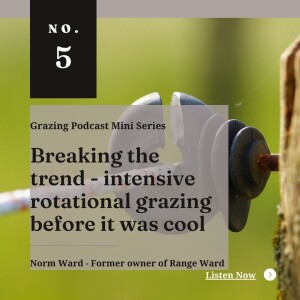
Monday Feb 26, 2024
Monday Feb 26, 2024
This grazing series chat is with Norm Ward, Norm shares his passion for intensive roational grazing and how it lead to the development of the original Range Ward products, he shares some of his early lessons learnt, why electric fencing does neither have to be intimidating nor frustrating and some of his key tips on how to make your transition to electric fencing more easeful. This episode was recorded a while back and Norm has since sold his Range Ward business but still has lots of valuable experiences to share when it comes to intensive rotational grazing.
Funding for this project has in part been provided by Agriculture and Agri-Food Canada through the Agricultural Climate Solutions – Living Labs program.
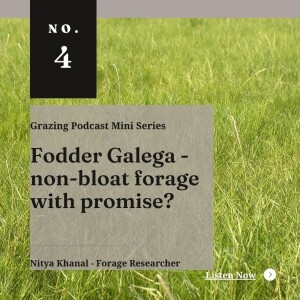
Monday Feb 26, 2024
Monday Feb 26, 2024
This grazing series chat is with Dr Nitya kanal, a forage researcher with Agriculture and Agri-Food Canada based out of the Beaverlodge research farm. We talk about the potential of fodder galega or goat’s rue as a forage legume. It fixes a lot of nitrogen, tolerates acidic soils, has good winter survival rates, and overall just sounds like it is one of those plants which sounds almost too good to be true.. so why do we not see it on the market yet. Listen in and find out.
Funding for this project has in part been provided by Agriculture and Agri-Food Canada through the Agricultural Climate Solutions – Living Labs program.
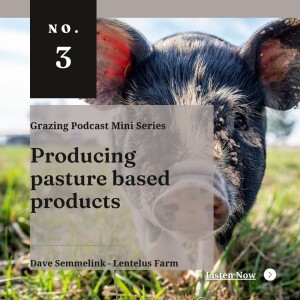
Monday Feb 26, 2024
Monday Feb 26, 2024
This grazing series chat is with Dave Semmelink from Lentelus Farm. Originally from South Africa, Dave now calls the Comox valley home where he runs a mixed farm. Our discussion ranges from pasture raised livestock, grazing management progression, whether it is worth integrating hogs into a crop rotation, a new chicken mobile and business diversification into meat processing.
Funding for this project has in part been provided by Agriculture and Agri-Food Canada through the Agricultural Climate Solutions – Living Labs program.
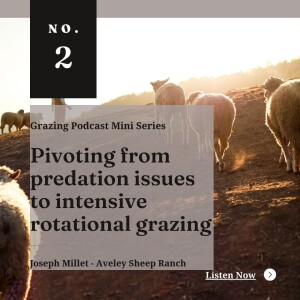
Monday Feb 26, 2024
Monday Feb 26, 2024
This grazing series chat is with Joseph Moilliet from Aveley Sheep Ranch. Joseph’s runs a sheep and beef operation about 2 hours north of Kamloops in the upper north Thomson. He shares how wolf predeation originally pushed him into more intensive rotational grazing, lessons learnt on where to actually place your fence, and electric fencing tips for sheep. For context, this chat was recorded in mid-summer of 2023.
Funding for this project has in part been provided by Agriculture and Agri-Food Canada through the Agricultural Climate Solutions – Living Labs program.
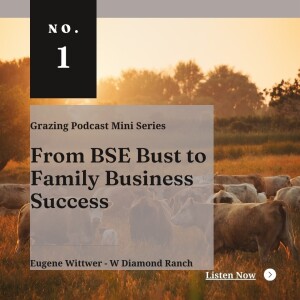
Monday Feb 26, 2024
Monday Feb 26, 2024
This grazing series chat is with Eugene Wittwer from W Diamond Ranch near Talkwa in the Bulkley Nechako area. He describes his operation as a community building regenerative farm. Eugene shares how his operation evolved, how the BSE crisis forced him to re-invent his business, how his rotational grazing practice evolved and how they manage not just animals but also a meat processing and custom cutting operation.
Funding for this project has in part been provided by Agriculture and Agri-Food Canada through the Agricultural Climate Solutions – Living Labs program.
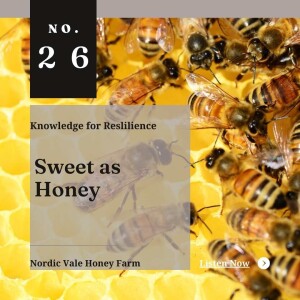
Tuesday Sep 19, 2023
Tuesday Sep 19, 2023
In their own words, Kole and Coline from Nordic Vale Honey describe that they started looking at creative options to help them feel fulfilled while also being able to provide for their family. Both Cole and Colleen were raised on farms out of town in northern rural communities so Agriculture in the Peace Region was a natural choice for them.Managing bees was an innovative way for them to start their adventure. After working with the bees only a few times - they were both hooked!
https://www.instagram.com/nordicvalehoneyfarm/https://www.facebook.com/NordicValeHoneyFarm/
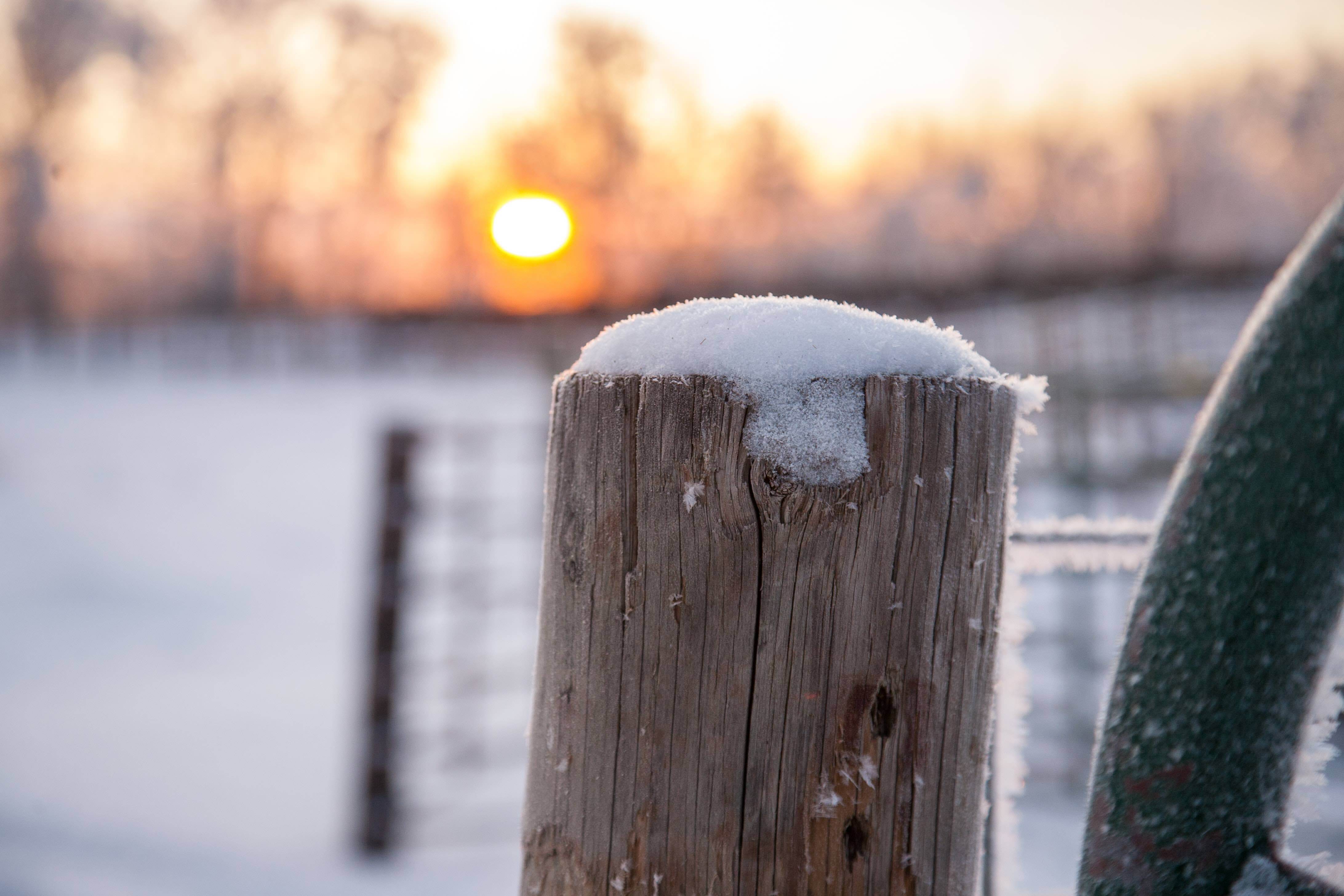
A Podcast for the Peace Region and Beyond
The Peace Region is rich in active producer and grower focused agricultural associations. To amalgamate our joint knowledge and foster cross-commodity collaboration towards our shared goal of building resilient and viable farming and ranching operations in the Peace Region, the Peace River Forage Association of BC (PRFA) is joining forces with the Peace Region Forage Seed Association (PRFSA), the BC Grain Producers Association and NEAT's Northern Cohort.
The project partner associations have a long standing history of bringing applied research, innovation and regionally adapted knowledge to a range of producers and growers. One limiting factor to move knowledge from research findings to farm applications, is the need for a bridge between the lab and the field. For example, if new research findings are published on reduced carbon emissions in no-till cropping systems, the information is likely first packaged in a scientific article. These articles are often locked behind paid journals and even if they are accessible, don’t make for the best bedtime reading material. Researchers on the other hand are busy proposing, implementing and analyzing their latest research, leaving little time and financial means to translate the scientific journal article into a format more easily consumable. Similarly, you may be curious about applied knowledge gathered by peers but may not have the opportunity to inquire for more details at the source. A podcast can offer a bridge between producers, specialists and researchers by packaging the information into a downloadable, on-the-go audio file.
Funding for this project has been provided by the BC Hydro Agricultural Compensation Fund.





